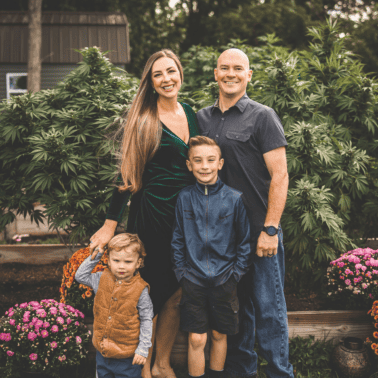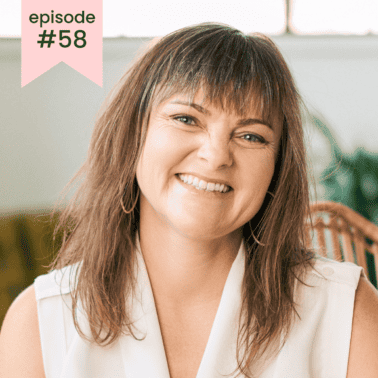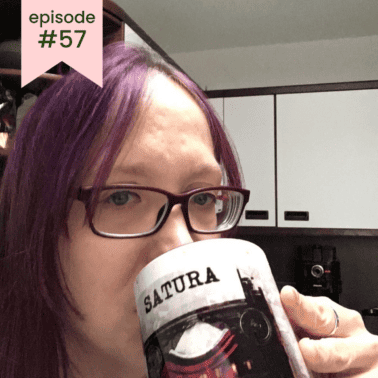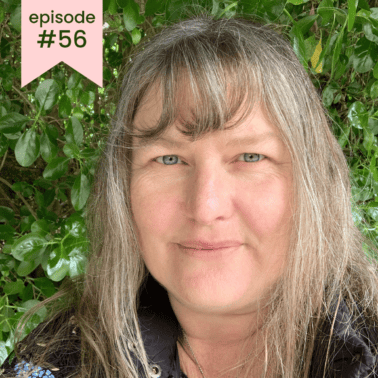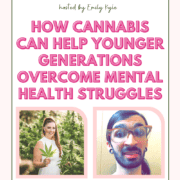This episode takes a deep dive into the world of cannabis as a natural remedy for anxiety and depression for the younger generation. We are joined by Leroy, a passionate advocate for cannabis, who shares his personal journey and how this powerful plant has positively impacted his life and others.
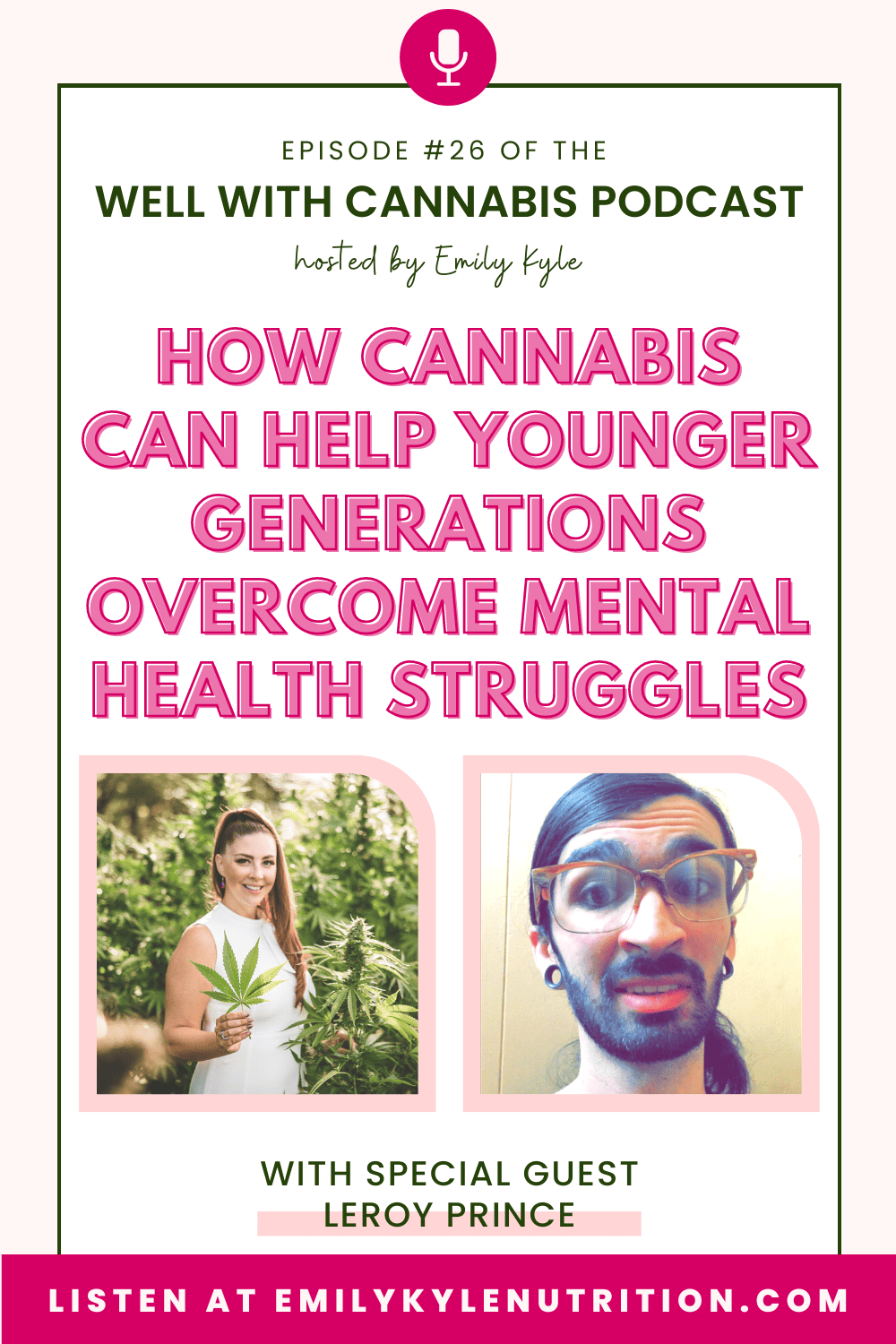
Table of Contents
Features
- Release Date: Monday, June 26, 2023
- Episode Number: Season 1, Episode 26
- Special Guest: Leroy Prince
Listen To The Episode
Click the play button above to listen to the episode.
Listen to all podcast episodes →
Why You Will Love This Episode
In this enlightening episode, we dive deep into the world of cannabis as a natural remedy for anxiety and depression, especially for the younger generation.
Our guest, Leroy, shares his inspiring journey in the cannabis world and how it has made a tremendous positive impact on his life and the lives of many others, he knows.
Leroy’s passion for cannabis is evident as he opens up about the numerous benefits of this powerful plant and why it’s one of the few medicines he trusts.
With a wealth of knowledge and experience, Leroy sheds light on the importance of understanding the potential of cannabis and how it can be a game-changer for mental health.
Join us as we explore the fascinating world of cannabis and its role in alleviating anxiety and depression for the younger generation.
Whether you’re a seasoned cannabis enthusiast or just curious about its potential, this conversation will surely leave you informed and inspired.
Full Transcript
Leroy: That’s what I always try to spread the message about. It’s all about the love. That’s what I honestly love about the community the most, any other types of different communities, a lot of hobbies, the cannabis community will always be the most loving.
Announcer: Welcome to the Well With Cannabis Podcast, a show dedicated to telling the life-changing stories of those who live well with cannabis all while teaching you how to do the same. Meet your host, Emily Kyle, a registered dietitian nutritionist turned certified holistic cannabis practitioner. Emily changed her life for the better with the help of the cannabis plant, and now she’s committed to helping others do the same.
Tune in each week to hear heartwarming stories and gain the knowledge you need to feel connected, inspired, and supported on your own cannabis journey. Whether you’re a new cannabis consumer or a lifetime lover, you’ll benefit from these uplifting tales of real-life journeys that will show you how you, too, can live your best life well with cannabis.
Disclaimer: Hi there. Before we jump into today’s episode, I wanted to share a note on potentially sensitive content. The episodes on the Well With Cannabis Podcast are created for adult audiences only. We will, at times, cover sensitive topics, including but not limited to suicide, abuse, mental illness, sex, drugs, alcohol, psychedelics, and the obvious use of plant medicine. Explicit language may be used occasionally. Please refrain from watching or listening to the show if you’re likely to be offended or adversely impacted by any of these topics.
The information on this show is for informational and educational purposes only. It does not constitute medical advice. If any of the content on this podcast has brought up anything for you, please reach out or speak to a professional or someone you trust.
Emily: Hello, and welcome back to another episode of the Well with Cannabis Podcast, and I am here with a special guest today, Mr. Leroy Prince. Hi Leroy. Thank you so much for joining us here today.
Leroy: Yeah, no problem. Thank you.
Emily: You said you have a very long journey with cannabis, and I’m super excited to learn more about you and how it helps you in your life.
Leroy: Honestly, I don’t know how to put it the way how you’d want to say it, but I started dabbling with it probably since I was 17. I’m 25, almost 26, on the 24th of this month.
Emily: Happy upcoming birthday.
Leroy: I don’t know how to talk about it being that young and starting it. Now, in the medical field, people can get prescriptions for seizures and stuff like that. I’ve used it primarily for depression and anxiety. I never was like, a daily user, up until like probably three years ago. After 21, so I waited until my brain was a little more developed. I did the smart route.
Leroy: I was just trying to abuse it or anything like that. I’ve always been responsible with it, that’s what I primarily try to do with my friends, too. I try to help them out. Sometimes people get into drinking alcohol and other things. I try to help them out of those dark places by being like, you can just smoke some weed instead. Hey, it’s not like it ever hurts to just do that for a recreational thing or something instead of just, I don’t know, falling in these lights.
Leroy: Things that are just poisonous for you and no good for your body, they just hurt you instead. Besides that, I’ve done a lot of lot of different things, learning how to cook with it and stuff like that, like recipes. Honestly, you were one of the first people that like got me into some of the things when I found your website. I just like researching, I always just research things. I just learned from the internet and that’s like the coolest part about the modern age, honestly. I don’t think people really see how cool the internet is.
Emily: I mean, we are here talking today. You found me randomly and now we’re here having a conversation.
Leroy: It’s so cool. And how people can come together and help each other out, learning different things about it. I’ve learned anything there is to know pretty much about cooking with it and growing it, too. Everything from the internet. I’m excited to see where, honestly, over the years, how everything has developed. I’m really hoping for a fair market, the way the states like to play.
Emily: Yeah. When the government gets involved, I think we can throw the word fair out the window, but I share the hope with you.
Leroy: It is kind of like dreaming on that aspect of it, but you got to go with whatever their rules are, you know.
Emily: Absolutely. Absolutely. Now, do you live in a legal state? Medical state? What does, where are you?
Leroy: I live in Virginia, so it’s we just got the ability to grow four plants and stuff like that. I have successfully done one harvest, too.
Emily: Isn’t it exciting to watch it grow?
Leroy: It honestly was one of my favorite things that I’ve seen happen, honestly, in my life.
Emily: It really is. People underestimate the plant. We’ve seen plants grow, vegetables, tomato plants, whatever. Watching the cannabis plant grow and watching the fact that you’re growing your own medicine right before your eyes. There are very visual stages so you can see it changing over time. For most people, they’re like, oh my God, this is the coolest thing I’ve ever seen.
Leroy: Yeah, I know it. It’s so hard to explain it too sometimes. They have no idea. I literally open the tent and just be looking down and touch some leaves. I make sure my hands are clean though. I know people are like, “Don’t touch your plant.” I would just, put on some music, too, while I’d be like doing that and I’d be like, I love my plant. Listen to music. My friends would be like, it’s kind of odd, but I’m like, no, I talk to it, too, like you’re supposed to. It’s right. It has a life, it lives, and it has a short little life. If you want your weed to be just as good as medicine, you got to give it the same type of environment that you want to feel later too.
Emily: Absolutely. It’s such a holistic experience really. It incorporates so many different aspects of life into one, and then at the end, you’re given medicine. It’s amazing.
Leroy: Exactly. It’s just, it’s mind-blowing, honestly. It really is.
Emily: Now I want to talk to you a little bit, if you’re open to it, about anxiety and depression and being a young adult because a lot of my interviews that I’ve done so far for this podcast have been with older generations.
Emily: You are the first younger generation I’m talking to, and I want anybody who’s listening who falls within that 20 to 30 range too. Who has never considered cannabis as an option for anxiety and depression? If you’re okay with talking a bit about how you started using it, how it evolved, and how it helps you overall.
Leroy: Yeah, I feel like my generation, honestly, has a lot to deal with that, and then, this happens. Yes. That’s where I’m going with this.
Emily: We need help here, and there’s something that can help.
Leroy: I always try to explain that to people. If you’re going to feel addictive qualities when you have those types of disease, not diseases, because that’s like a bad word to use, but, just like it isn’t, it is like an illness, it doesn’t go away. The thing is if you’re going to have addictive qualities to the illness, like depression, you may as well use cannabis, which is natural. We’ve cultivated it for 10,000 years. People have been using it for medicine for a long time for, an obvious reason.
Leroy: It helps you; it just makes you feel better. You can say, “Oh, I’d rather have a drink or a beer or something.” But there’s going to be damage that happens to like your body from that, your liver. Eventually like cirrhosis or something. But cannabis does the opposite. It helps cirrhosis and so why not do something that’ll help benefit you like, and help you like live longer and better? It’ll make you feel better instead of having to go out and get pharmaceuticals, or going to the doctor and getting prescribed something that, when they investigate the medical books, they literally have no idea why it works.
Emily: They just, yeah. They don’t know. They just prescribe it. Here you go. I have found with a lot of people, even if it doesn’t work, they really don’t care. They’ll just have you keep taking it anyway.
Leroy: I’m just baffled by that because people will tell me that too, and I’m like, so you have anxiety, and they give you this, and then they’re like, take this, and it’ll make you feel better, but you have no idea why, and the doctor doesn’t, and you’re just taking it.
Emily: We’re so cautious, especially our younger generation’s cautious about cannabis, but so willing to put alcohol in our bodies. So willing to put pharmaceuticals in our bodies. So willing to put junk food in our bodies. I find it interesting what we are accepting as okay for ourselves in this state.
Leroy: That’s what I’ve always been really confused about, is just the amount of like alcohol, pharmaceuticals, stuff like that.
Leroy: The thing, not like a bad problem, with junk food is that it is easy to get into sometimes. This year I have been focusing on exercise and drinking more water all the time because, honestly, if I know how a plant grows, and I can grow healthy, and I get good medicine out of it, I may as well focus on my fitness too.
Emily: Oh my gosh, that is so great to say. That is so smart.
Leroy: Yeah. I, I don’t know, it was just like.
Emily: With your eyes, you watched it happen, and now you’re like, oh!
Leroy: Yeah, it was because I was reading this book too.
Emily: I have it right up here. I have the same one right up here on my bookshelf.
Leroy: I was reading that half through the year; I want to say August through until now. It was just in between work. Getting that done because I want to start a business eventually. But in the first half of the year, I wanted the experience of growing a plant. Cooking with it, just learning afterward, making my own infusions, everything. It’s just fun. It’s an experience. It’s a hobby. There are just so many things. It’s such a good hobby to have.
Emily: It’s you’re growing, you’re cooking, it’s multiple hobbies in one. I do feel like our generation, as we’re younger we spend some time being like, “What are my hobbies? What do I like to do if I’m not working?” For a lot of people growing cannabis becomes a really therapeutic hobby for them.
Leroy: Yeah, I sometimes forget. I do have some tattoos. I don’t know if you can show them, but like one is a weed leaf. It’s not some memorial tattoo unfortunately but part of the therapy comes with that too. It helps with loss or stuff like that.
Emily: I had a podcast interview with a guest who used cannabis to get through the loss of her husband and it brought her such a sense of calmness and relief. Even though it was the worst time in her life, she felt like she had something to turn to. And that’s beautiful for a lot of people.
Leroy: I’ve seen that firsthand too. I have a lot of friends that had a bad kind of loss and they’ll say that cannabis is a way to cope. That’s what I was talking about, instead of alcohol and stuff. That’s why I try to tell people. Even if you overindulge, sometimes not abused, but if, even if you overindulge, you don’t have a bad habit. With alcohol, that is true. Waking up the next morning, not being able to go to work and instead you wake up the next day after smoking a few too many joints like the night before. You’re just going to be a little groggy, but you wake up after a cup of coffee and function. You’re fine. You’re not like having a headache all day. Got to have a big meal.
Emily: That’s really something to be said to our generation who are listening because I know everybody drinks, I know everybody likes to drink, but nobody likes to be hungover. Cannabis really can play a big role in our social outings as well. I used to like to drink and go out, but when I started replacing my drinks with cannabis, no hangover. It is easier to get up in the morning. I certainly didn’t do anything embarrassing in the night. There are so many benefits socially. I know we like to focus on cannabis as medicine, but it can be a recreational tool as well. If you’re going out and socializing, it can bring a lot of people out of their shell if you will, and just ease that social anxiety for people too.
Leroy: No, yeah, that’s it. I try to help normalize it as much as I possibly can. I’ll talk about it nonstop sometimes. And my friends would be like…
Emily: I know, but when you feel so good, you must share it with other people. You want other people to know.
Leroy: I still don’t understand sometimes; the stigma still confuses me, but then I’m like, oh wait, I live in a different kind of world. We don’t realize that the older generations were brainwashed into thinking that cannabis was the devil.
Emily: Quite literally, the Devil’s lettuce. All these interviews that I do with older generations, they all repeat the same thing. I was told my whole life how terrible it was, and I really wasn’t. Were you?
Leroy: No, I had a different experience. It’s funny because my dad, I remember when I was young, not saying that I’d tried like any, I never drank. I’ve had only a few drinks probably early, maybe a few times, 17, 18, somewhere around there. I never tried cannabis until 17 either. But what I’m saying by this is my dad, even when I was like younger, when sometimes when his friends would be over, and they’d be like, too drunk and then they would’ve to leave and stuff.
Leroy: He’d be like, “This is why when you get older, I would just rather you smoke instead of drink.” I just remember that today. I didn’t know what it meant until I got older. But I’m like, I miss you, it stuck with me, it makes a lot more sense. I know, if I were to be out smoking with my friends and it’s like an hour or two later, we’re all going to be okay, it’s all going to be fine to head home. But say if we’re drinking, you’re going to be drinking way too much. No matter what it is, it’s always going to be way too much. And you can’t drive for hours and it’s like you’re going to have to stay there. I like to be able to sleep in my own bed. I like people saying I’m too old at this point to sleep on a couch or a party floor or anything else.
Emily: I’m the same way. I want to go home and get in my bed.
Leroy: Yeah, I’ve always been that way. That’s I don’t know. That’s why I never.
Emily: It just makes it easier. I feel cannabis is just easier to deal with and manage, I wish more people would honestly see that.
Leroy: To be fair, it is very confusing sometimes.
Emily: I want to come back to something that you mentioned that perked my ears up. You said the word fitness, and I want to talk to you about that because so much of the stereotype is thinking that cannabis users are lazy, apathetic, and can’t get off the couch. Pretty much anti-fitness. In my personal experience, and a lot of people that I’ve talked to, cannabis helps enhance the exercise experience. It encourages more physical activity. Share a little bit about your experience with fitness.
Leroy: I started two months ago really getting into exercising, at least a few times a week. Where that came in was, I wanted to quit nicotine. I quit cigarettes three years ago. It was a stepping stone because I knew I wouldn’t be able to do it right away, so I switched from that to vaping. Vaping isn’t horrible, but it’s still just as bad because you still get nicotine. Still, bad for your heart, blah, blah, blah. I weaned myself down, and I was able to quit two months ago, and I haven’t had any nicotine ever since.
Emily: I’ll give you a big congratulations because that is hard. Nicotine is very addictive, so congratulations to you.
Leroy: No, yeah, thank you. It was taking everything honestly to try and quit, and it’s still honestly getting used to a lot of light.
Emily: Your daily little habits. I smoked for five years, so I understand your identity as a smoker; it feels like it’s part of who you are. It’s very hard to give up.
Leroy: Yeah. It’s a social thing. You just want to have it, especially when you talk to people. You’re just like, “I want a cigarette or something.”
Emily: Yeah, absolutely. So how did that lead to fitness? Was it just getting rid of the nicotine that brought you there?
Leroy: Yeah, I was like, “I’m going to replace this”. Sometimes I would have a lot of hobbies, but sometimes you’ll just find yourself just chilling, and you’ll just be bored. You’ll be like, I’ve watched a few YouTube videos, I have a weight, so I was like, maybe I’m going to start using this a little more. I started with a five-pound weight and I just do as many as I could. I got up to basically a hundred reps.
Emily: That’s a commitment is not like you’re sitting there just doing 10 and then you’re done. That’s a lot.
Leroy: Once I got up to a few hundred on each arm with that, I moved up to a 10-pound, and now I got a 15-pound. I’ve just been doing the same process, just basically trying to get in shape so I feel better. Yeah, because if you feel better.
Emily: How are you feeling?
Leroy: Feeling better? A lot better than I can say. A lot better than what I was normally feeling because I was smoking nicotine, never really trying to exercise or anything. It was such a big difference, to be honest with you though, when I would smoke, just smoke weed. It was different, like really.
Emily: Interesting
Leroy: That’s what I noticed, which was weird, is like when I would, yeah, when I would smoke, it would be it felt like it was like a tolerance break or something.
Emily: It’s interesting though because I don’t know, everything can affect you differently.
Leroy: It was like, I don’t know, a sensitivity. Everything like hurt and just like pulled up, and I’m like, I can taste better.
Emily: That’s got to be so nice. Now, I personally love using cannabis before I work out. Have you tried that yet?
Leroy: It is for me. I probably do it almost all the time before my workout. I’ll catch myself watching YouTube for a few more minutes before I start getting into it, but yep. It does help. Helps you motivate.
Emily: I do. I feel like I’m like, “Okay, I’m going to do this, and then I’m going to work out” and I just find that I get so into my workout, I’m very zoned in and focused. Part of me is like “I can do this.” I always used to tell myself, “I can’t do this. I’m not strong enough.” Something about cannabis just gives me the confidence to be like, “You’re strong. Go ahead, do this.”
Leroy: It is a motivator, to be honest with you. I’ve learned so many random fun facts. Whenever you’re in a funk, I would cause cannabis because it goes with so many different types of subjects. I can never say this word right, but cannabinoids. Every single time I say that, my friends are like, are you saying that right?
Emily: I’m pretty sure, yes.
Leroy: The endocannabinoid system in conjunction with your immune system. Those two are best friends in your brain. If you drink enough water, eat a proper diet, some exercise and fitness in your life too, it’s going to make you feel better. But then also when you smoke, you’re going to feel even better too. I had this weird thought that I’m like, is cannabis? Like a food supplement?
Emily: Totally. It’s something. It’s like the perfect puzzle piece, into the wellness picture. I feel like, for me, I could never make the whole wellness thing work until I added cannabis, and then I was like, oh my gosh. It finally all works together.
Leroy: That’s what I’m saying. I was like, could I dive too deep down the rabbit hole? Now I’m thinking like weed is food.
Emily: No, but it absolutely is. Even when people eat it raw, it provides so many benefits and nutrients. It absolutely can be consumed that way too. When you start to think about it, you realize how natural it is and how much it affects your body. And you’re like; everybody should have this.
Leroy: I thought about in that way. That’s wild. Isn’t it crazy? Everybody’s always thought of it as something you can smoke. Make into food, but wait, it could be a like, could be something that’s a food group or something.
Emily: I think about that endocannabinoid system; why it exists. It really could be a food supplement interaction where “Hey, it’s wintertime, you’re really depressed cut you haven’t seen the sun.” You need some vitamin D. We could really do the same thing with cannabis, for whatever. For any issue, cannabis can help that.
Leroy: That is very true. I was trying to think because I haven’t investigated that.
Emily: It is like one, you said you like to research, like once you get going down the rabbit hole, you’re going to be like, oh my God. I find people get hooked on cannabis, and they’re like, “I didn’t realize there was this, these many things to know.” Then you just get to learn about one thing and then another thing and it, it gets so exciting, and then it really makes you the medicine man.
Emily: Once you know all those things, you can manipulate cannabis to be any way you want it to be.
Leroy: That’s honestly what I chase all the time and do. It’s unlimited knowledge. It’s just it goes into everything. Honestly, I didn’t think lights were so complicated until I like got them.
Emily: That in and of itself is like a science experiment and so fascinating. I haven’t even dabbled, but I know that anybody who can set that up and successfully grow a plant is extremely knowledgeable because it’s not easy.
Leroy: It honestly was one of the toughest things I probably did was indoor growing, to be fair.
Emily: You should be giving yourself a pat on the back. That’s amazing. And then to have a successful harvest on your first try.
Leroy: Super excited. Honestly, when I was looking back into it, it surprised me a bit because I think there’s somebody on YouTube. He’s a good one; he does a lot of indoor growing. He does a good bit of auto flowers. I got four ounces off it, and it was just one plant. It’s a lot. That’s what he usually got off one plant at a time.
Emily: It really gives you the confidence to be like, “I can do this.”
Leroy: That’s what I want to do is like a new thing that I’m looking into, like trying to do. We’re about to move from this house to a new house soon. I’m waiting until we move to that house to set up something. I was going to try a new type of grow to make a weed laboratory; I guess that you would call it.
Leroy: I want to study genetics and make seeds. I researched and studied a lot of aeroponics. I want to work with using two mother plants and have them as clones and work with cloning and do some aeroponics. Take clones from the mother plant and then experiment with them in the air. Set it up in two ways: divide it, grow it, and make seeds out of it.
Emily: You’d be like totally self-sufficient at the end. You can make everything you ever wanted to make. And I think it’s so interesting because there are just so many avenues to explore. It’s so exciting.
Leroy: I want to start making content once I have that set up. Share the research with everybody about aeroponics.
Emily: You must; people are dying for that knowledge currently. You need to get that out there.
Leroy: I feel like there’s a lack in the market whenever you look at that subject; nothing is really done there. Maybe it just hasn’t been experimented that much with cannabis. I’m not sure.
Emily: It’s the perfect avenue for you to come on in and be like, this is my spot in the cannabis space. It’s always a possibility. I find a lot of people who have that passion for it in their regular life turn it into a career because they love it so much.
Leroy: That’s what I was thinking too. I could make it like a career one day, like through doing, I don’t know. I’ve always wanted to make it a career, but I’ve always wanted to do it, the things you already do. You know what I mean? I got to do these things I don’t want to do. I want to do the things that I want to do with it.
Emily: The future is ready and waiting. There are so many opportunities out there. I feel like that is one of the most exciting things about the cannabis industry. Not only are there openings for people to use it and fall in love with it, but there are opportunities for people to turn it into their life’s work, which is amazing. I hope that for you.
Leroy: Thank you too. That’s what I’ve always liked, the weed plan in general. I don’t know; it just looks really cool too.
Emily: It does. It absolutely does. As you said, it helps you in your life. It helps me in my life. If other people could have this and we could all live a better quality of life, I think at the end of the day, that’s everybody’s goal.
Leroy: That’s what I always try to spread the message about. It’s all about the love. That’s what I honestly love about the community the most. Whenever you go anywhere else, in any other types of different communities, a lot of hobbies or I don’t know, just communities basically in general. The cannabis community will always be the most loving. Say if somebody has too much or something. Everybody’s going to be right there, and they’ll be able to calm me down, and everybody would just talk them through it. But say with alcohol, that type of scenario, if somebody’s too drunk, you really don’t know in this.
Emily: Some of your friends could use a Sharpie and draw a penis on your face, not make you feel better. Yeah.
Leroy: Yeah. Yeah. It’s not really like it. I don’t know. I feel like it’s more of cannabis as a lifetime community. It’s all-inclusive. It’s not like you got to be a 20-year-old frat boy to be able to be like hanging out with all the people that are drinking.
Leroy: You could be like 40, 50, like 60, 70. People of all ages come together and they’ll just be able to enjoy it. They’ll be able to have the same experience and tell stories to each other about it. It’s like they can come together, I don’t know. It’s just all so special.
Emily: Like you said, a community. I have found the same thing. The cannabis community is a wonderful space. Everybody who’s impacted just wants to share it with others and wants to make others happy and healthy. And that’s what you’re doing here today. I really appreciate you coming on and sharing your experience with the plant. I want to be respectful of your time. I’m going to get to the four questions that I ask all our guests. Are you ready for the first one? What are you most proud of in your life to date?
Leroy: There are a lot of accomplishments. I never honestly thought I would get this far to be fair. Doing this many things. At this point, growing is one. I didn’t know growing it inside was that much harder. I found that out. I still run my dehumidifier and have hydrometers in my room. Just keeping the environment the same. There are so many skills you can talk about, to be honest. It’s a separate little light. Every step has a different method too. It’s so exciting; learning the groove for each one of those. A lot of the edibles I made, so many recipes I’m proud of. I’ve been a chef for a long time.
Emily: Oh my gosh, what a perfect combo.
Leroy: I like to learn how to make stuff from scratch and develop recipes that would give you different effects with the entourage effect. That’s what I studied a good bit for a while there. I just investigated the different ways different types of foods and how they make you feel, along with using infusions with them. One of my favorites is a juice that I made up. It is a recipe for mango nectar, apple juice, and MCT oil. If you mix those together, they are great. Mango nectar has, I forget the word…
Emily: Myrcene.
Leroy: I can never say it. Whenever you mix those together, the nectar and the oil, you can shake up the juice, and it’s like a salad dressing mixture. It would be like a smoothie, but you can shake those up. Altogether though, if you have that, it’s just a euphoric, very calm experience.
Emily: Have you found that the mango enhances your experience? A lot of people say it does.
Leroy: Yeah, trust me.
Emily: For anyone who has never tried it, there is this theory that mangoes, because they contain the terpene myrcene, work with the entourage effect together with cannabis to create a more enhanced experience. So, if anybody is willing to try mango, it works. Be careful with how you try it, depending on your desired outcome. But it’s worth trying for a lot of
Leroy: People, I can vouch for you.
Emily: It makes me want to make some of that juice right now. Now, what do you think your life would look like if you didn’t have cannabis?
Leroy: I saw that question in the email, and I really didn’t know. I thought about it hard too. I was like, do have to think about it with anything too. It’s a tough question to think about, too, because it’s I would probably still be a scientist, to be fair. I would just probably have done different types of things with biology. I’ve always loved biology, and that’s why with cannabis it’s, it was just an easy kind of, yeah, it being a chef and loving biology, it’s like the best of both worlds.
Emily: Oh yeah, I didn’t even think about that. It’s like a trifecta right there.
Leroy: I had a 130 for my overall grade average in high school for biology class. So yeah, I don’t know. I couldn’t tell you, though, as a little kid, I wanted to be like a scientist, to be fair. So this is the best profession.
Emily: You’re going to be able to be doing what you want to be doing, which is great.
Emily: Okay, so next one, and this might not be applicable to you because you’re younger, and you’ve always had cannabis. If you could sit down with yourself 10 or 20 years ago and give yourself a piece of cannabis advice, what would it be? As I said, I don’t know if that’s applicable because you’d be a teenager or a child.
Leroy: I would be 16, 17. I had it like maybe once or twice by then, but I guess I always had that semi-perspective, not all the way because you can’t say how you’re going to be when you’re older or anything, but I would always tell myself, “How would you feel about this if you were older?” I’m like, if you’re going to use it, maybe be more responsible.
Emily: Great thing, and I’m glad you said that because everyone thinks the opposite, but people who use it, they know it’s true.
Leroy: That’s why I always try to tell people too. It’s the misconception of alcohol; they’ll be having ads everywhere on the Super Bowl. Kids watch the Super Bowl, but weed must be the shadows, and it’s like a medicine that could help.
Leroy: CBD, for instance, too. It’s like the sister plant; it could help these people with seizures and stuff like that.
Emily: We’ve just got to get it into more hands of people. It’s crazy when you think about the Super Bowl and how many ads we’re going to see for alcohol, and as you said, you’re not even allowed to advertise CBD, even on a Super Bowl commercial.
Leroy: Yeah. That’s what I don’t understand. It’s just a big stigma that people have. They see it as like a drug, but it’s a plant.
Emily: It’s a beautiful, amazing plant.
Leroy: Literally, you don’t even have to do like anything to it just grows, and then you harvest it, let it dry, and then you can use it. It’s amazing. You don’t put it through a process. You don’t change it in any way, shape, or form. You can, but that’s why I’m saying, you can take it, you can cook with it, make it into food, and then you could have a meal with your medicine. Take something that might make you nauseous, and you’ll have to sit there and get over being nauseous for an hour, like with antibiotics that I’ve taken in the past. Antibiotics are good for you.
Emily: I know what you mean. It’s just the lack of side effects that makes it such a great option for people.
Leroy: Exactly. Instead of having to take some, especially for the seizure scenario. When like people must take CBD for that, or I think in some cases, THC is used for it. Especially in those cases, I couldn’t imagine that they would probably have to have a prescription, though, instead of that. If they didn’t, weren’t taking cannabis, and something like that would probably be strong. The side effects of probably getting nauseous and not feeling like you wouldn’t want to eat or stuff like that. Instead, you could smoke a joint. You’re going to feel better. You’re going to eat some food, and you’re going to be able to sleep. Everything. Instead of having to take these chemicals that’ll hurt your body more than it is helping you.
Emily: All right. Very last question, and I think this will come into your future very well. If you could be remembered for just one thing in the cannabis space, what would it be?
SAVE THIS GUIDE 💌
Leroy: That was the other hard question when I saw that one too. I thought about that one a good bit. I just love cannabis so much. There’s just one thing I can tell people. I tell everybody all the time that education is power. If you learn about anything, the skills that you get from learning about it, you can apply them in the real world. I never thought I would get to the point I’m at today. It’s just you keep doing things piece by piece.
Emily: That’s perfect. That’s a perfect way to wrap this up. Thank you so much, Leroy, for sharing your experience and sharing your love for the plant and some growing tips; I’m sure I’ll be asking you in the future. I feel like you said, like a mad scientist. You’re doing experiments all the time. I hope you have lots of fun things to be experimenting with. Thank you for sharing with us today.
Emily: I really appreciate it.
Leroy: No problem. Thank you.
Announcer: Congratulations, you’ve finished another episode of the Well With Cannabis Podcast and are one step closer to discovering how you, too, can live well with cannabis.
Thank you for listening in today. We hope this episode has been a helpful and informative one. Please visit emilykylenutrition.com for more information on today’s show, show notes, guest information, recipes, and other resources.
If you want more support and encouragement on your cannabis journey, please consider joining the private Well With Cannabis Community. In this group, you can connect with like-minded individuals focused on improving their health and wellness through cannabis.
Join the group today to continue your journey of wellness together!
More Episodes
Growing Cannabis
The Kyle Family 2023 Cannabis Harvest
Podcast Episodes
Getting Insurance Reimbursement for Medical Cannabis in Germany
Podcast Episodes

